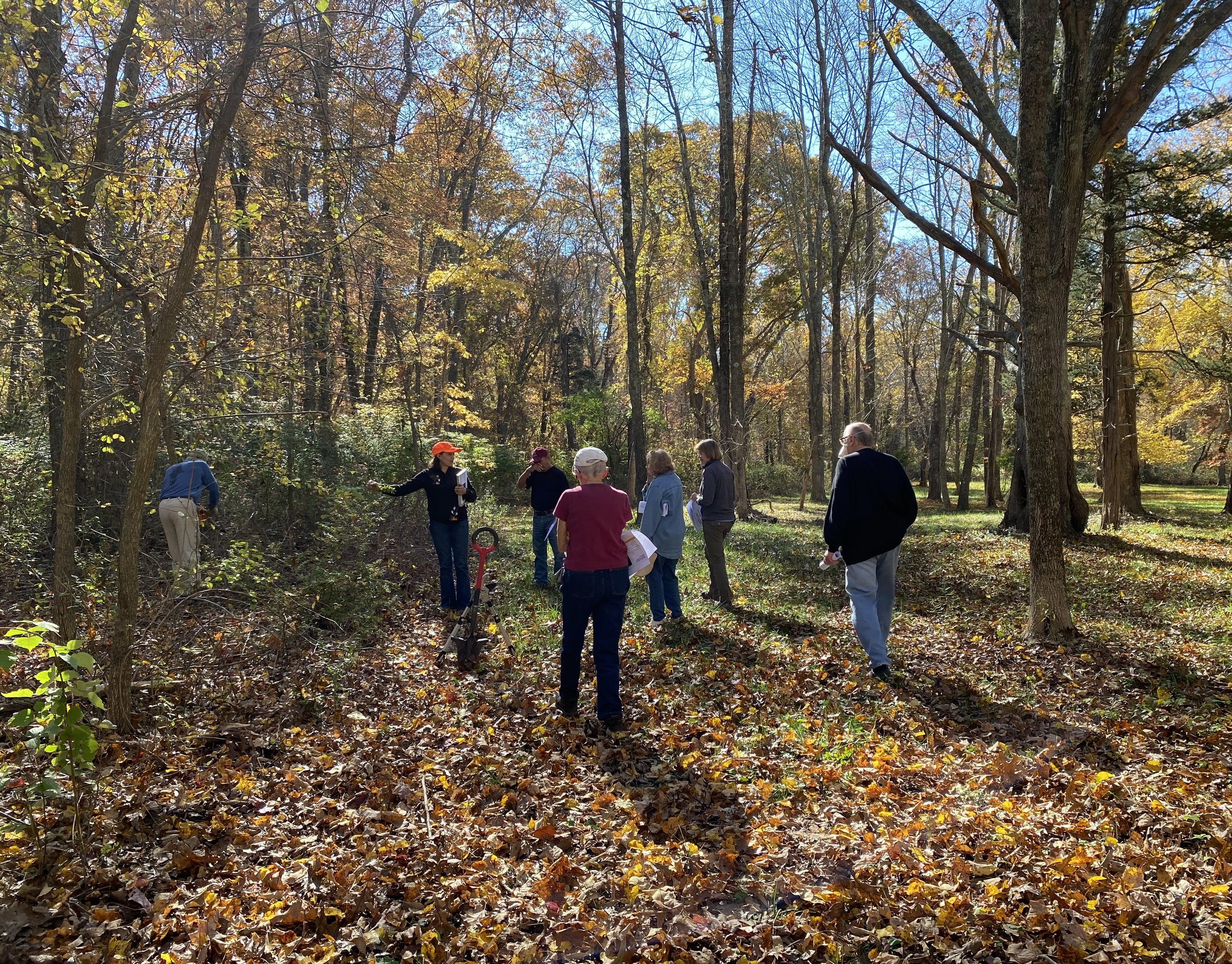Invasive Plant Workshop Held in October
On October 28th, 15 people attended our field training and learned how to identify and control six of the most common invasive plant species found in our area. Led by Jessie Blackledge, Stewardship Coordinator, with Land Trust president, Tom Webb assisting, the workshop addressed best management practices and techniques for mechanical removal and chemical eradication. Thanks to Susan Waddington at Dead Whippet Farm for hosting the workshop on her property.
What is an Invasive Plant?
An invasive plant is a non-native species whose introduction does, or is likely to cause, economic or environmental harm and/or harm to human health. Many non-native species are NOT invasive, however, some species have become invasive and cause more harm than good. As many as 70 plant species in Massachusetts are considered invasive.
Characteristics of an Invasive Plant
> Non-native to a particular ecosystem, in this case, New England
> Spread rapidly and aggressively, displacing native flora
> Persist in natural landscapesOur Top Six Invasive Plants
1. Rosa multiflora - Multiflora rose
2. Elaeagnus umbellata - Autumn olive
3. Berberis thunbergii - Japanese barberry
4. Celastrus orbiculatus - Oriental bittersweet
5. Ligustrum sp. - Privet Bush/ Hedge
6. Rhamnus frangula - Smooth Glossy Buckthorn
Learn more at Massachusetts prohibited plants list: https://www.mass.gov/info-details/massachusetts-prohibited-plant-list

